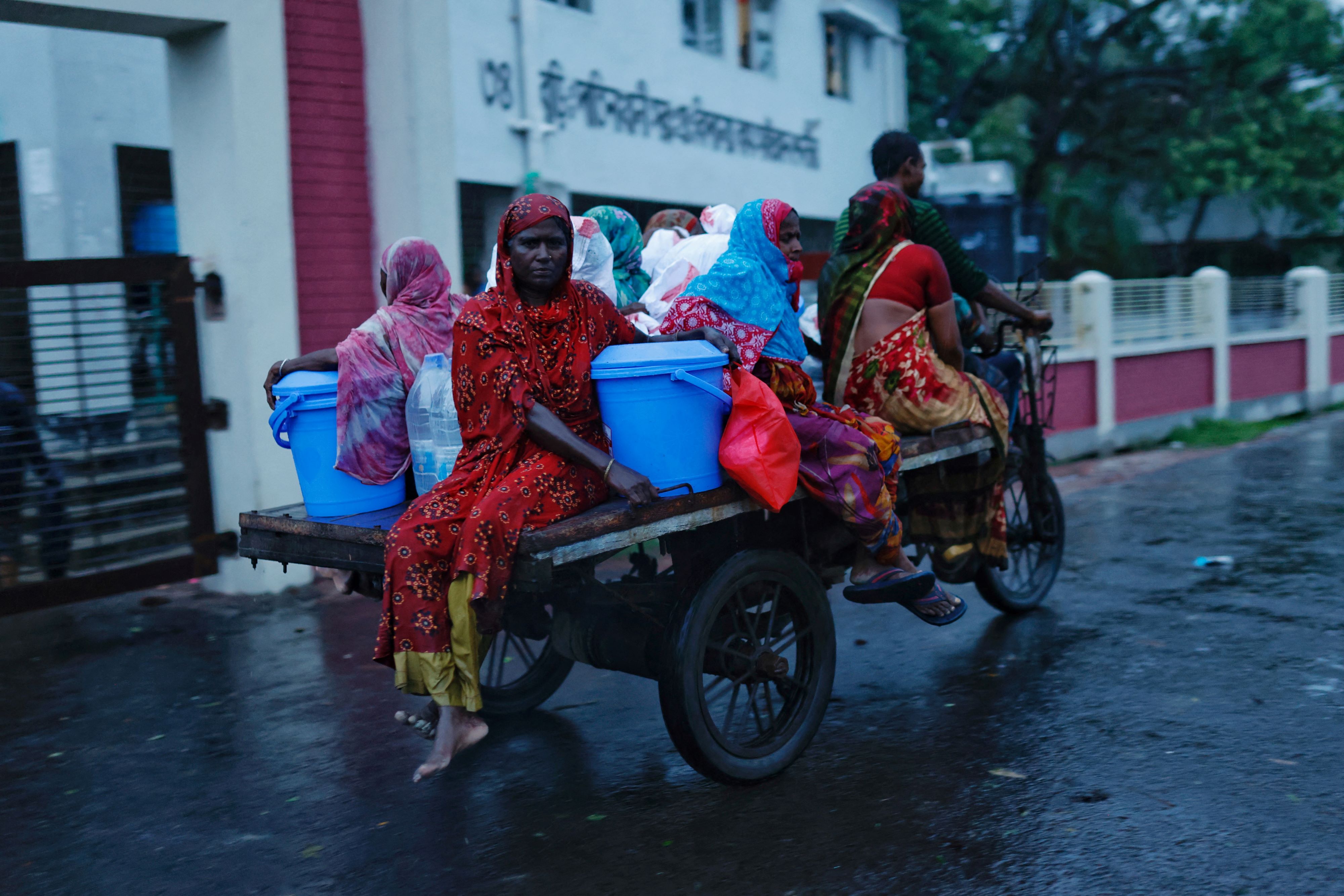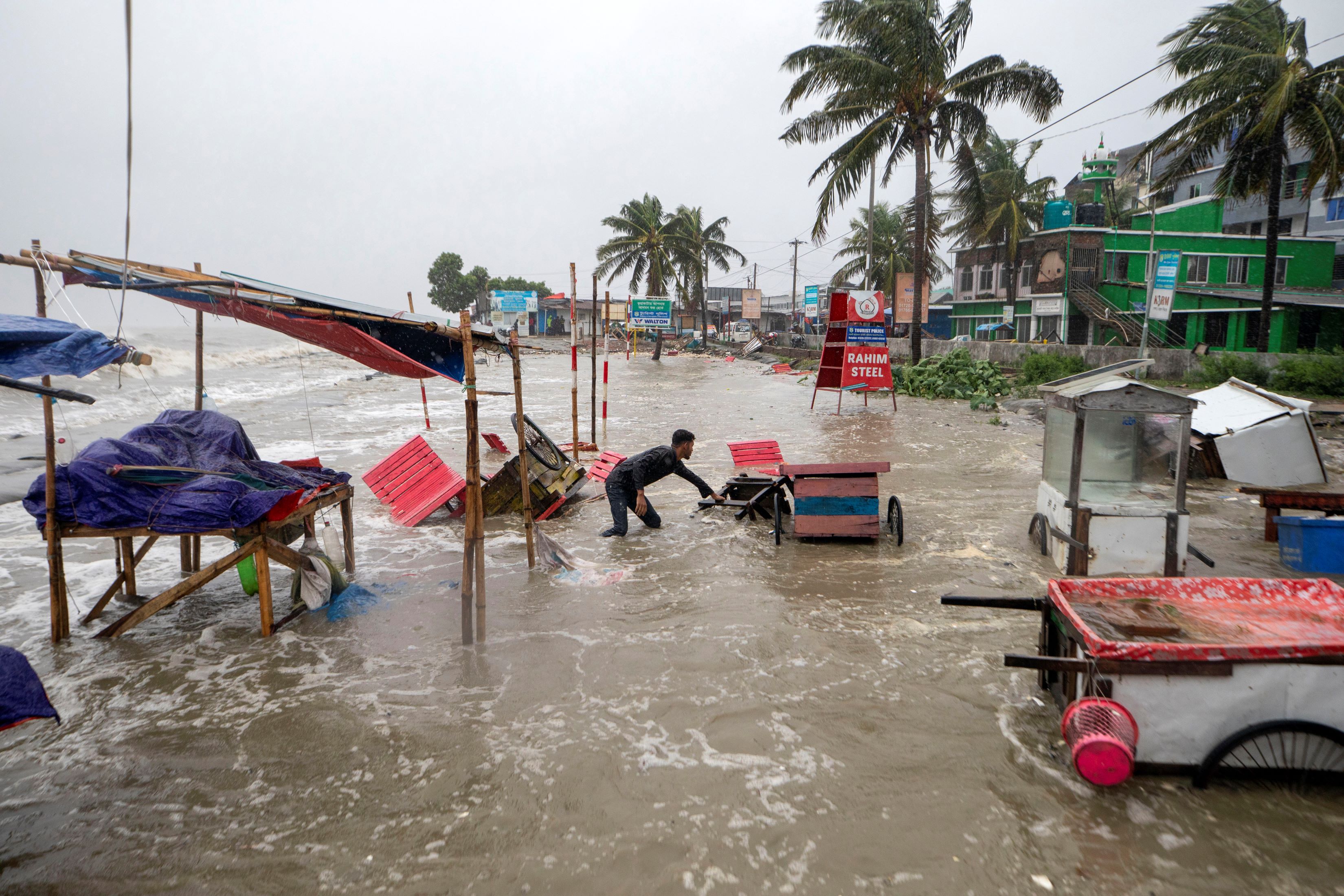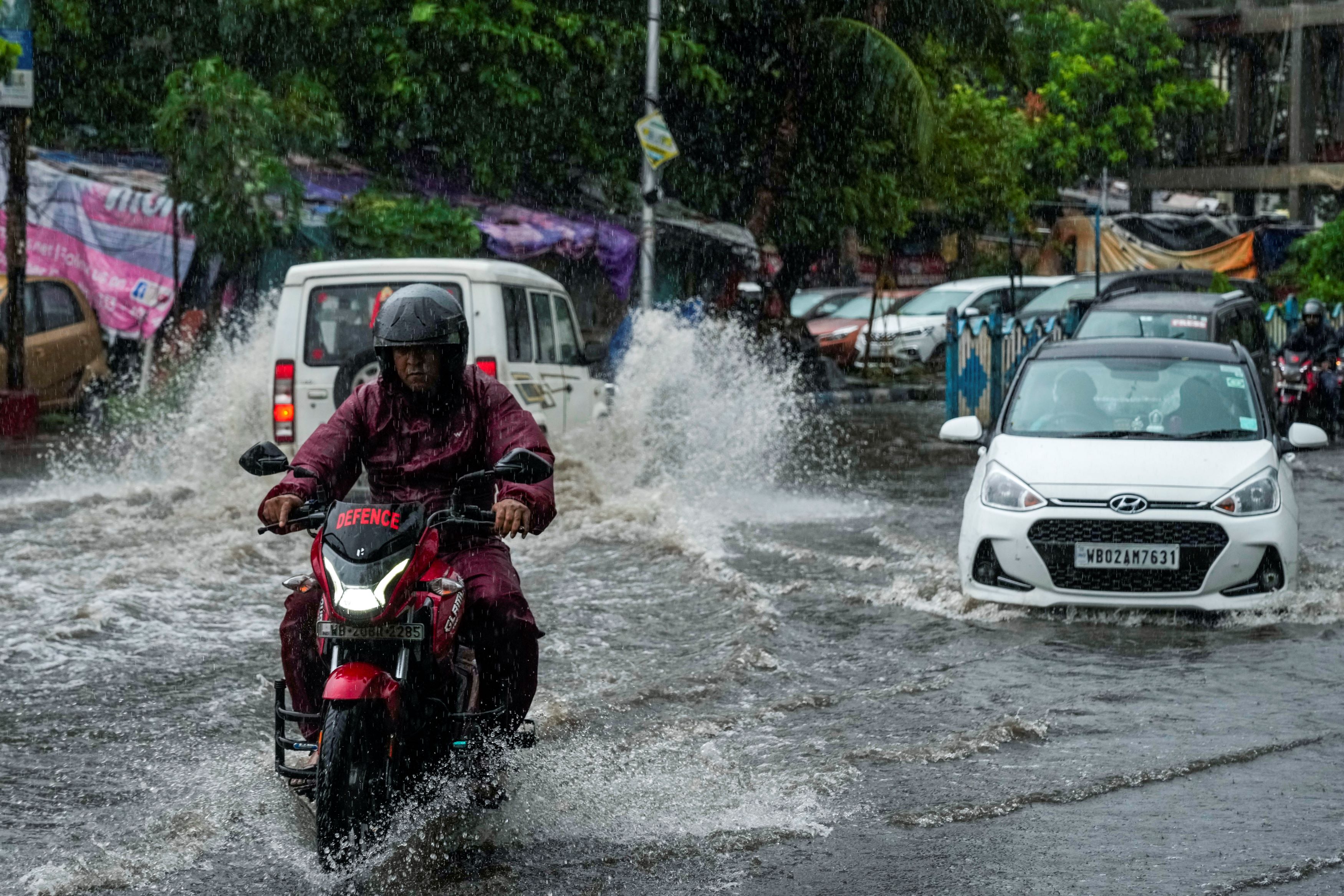
SATKHIRA, Bangladesh - Strong gales and heavy rain brought by cyclone Remal lashed the coastlines of India and Bangladesh on Monday, killing at least four people and cutting electricity supply to millions before losing intensity.
The year's first cyclone in the region is the latest of the frequent storms that have pounded the low-lying coasts of the South Asian neighbors in recent years, as climate change drives up surface temperatures at sea.
Fierce winds snapped power lines, uprooted poles and trees and snatched the roofs off some tin and thatched houses while the rain and high tides damaged some embankments and flooded coastal areas.
Two people were killed in Bangladesh as they headed to cyclone shelters at the 11th hour, said disaster management chief Mijanur Rahman
"We have had no electricity since night, my mobile battery will run out anytime," said Rahat Raja, a resident of Bangladesh's coastal district of Satkhira. "By Allah's grace, the cyclone was not as violent as we thought."
Nearly 3 million people in Bangladesh were without electricity, officials of its power ministry said.
READ MORE: India, Bangladesh brace for year's first cyclone
Both nations moved nearly a million people to storm shelters, about 800,000 of them in Bangladesh, and roughly 110,000 in India, authorities said.
Two people were killed in Bangladesh as they headed to cyclone shelters at the 11th hour, said disaster management chief Mijanur Rahman.
"People are usually very reluctant to leave their livestock and homes to go to cyclone shelters," he said. "They wait until the last minute when it is often too late."
Authorities will need more time to gauge the full extent of losses, he added.

The storm, packing speeds of up to 135 kph, crossed the area around Bangladesh's southern port of Mongla and the adjoining Sagar Islands in India's eastern state of West Bengal late on Sunday, Indian weather officials said.
It began making landfall in India at about 9 pm, a process that ran for about five hours, weather officials added, before weakening into a cyclone during Monday morning.
Now it is expected to move northeast and weaken further, bringing more rain to states there, they added, as winds and rains eased.
One person was crushed to death by falling concrete in the state capital of Kolkata, authorities said, while a woman died when a mud home collapsed on the island of Mousuni in the Sundarbans delta.
READ MORE: South Asia faces extreme weather with heatwave in India, cyclone in Bangladesh
High tides breached some protective river embankments in the area, home to some of the world's largest mangrove forests, which is shared by India and Bangladesh.
Rain flooded roads and disrupted travel in Dhaka, the capital of Bangladesh, where authorities gearing for the storm set up nearly 8,000 cyclone shelters and drafted in 78,000 volunteers.

India's navy put ships, aircraft, divers and medical supplies on standby for rescue operations.
Power supply hit
Though early warnings and timely evacuation helped avert major casualties, the storm took a heavy toll on utilities in both countries.
Bangladesh shut down electricity supply to many areas in advance to avoid accidents, while many coastal towns were left in the dark as fallen trees and snapped electricity lines disrupted supply, power ministry officials said.
Kolkata resumed flights on Monday after more than 50 were canceled on Sunday, when the storm forced suspension of operations, while suburban train services were also restored
Reports of at least 356 uprooted electricity poles and damage to scores of transformers flowed in early during the storm's landfall in India, said Arup Biswas, the power minister in its state of West Bengal.
ALSO READ: India's massive election faces heatwave challenge in penultimate phase
Kolkata resumed flights on Monday after more than 50 were canceled on Sunday, when the storm forced suspension of operations, while suburban train services were also restored.
Rains brought by the storm flooded many streets, television images showed, with reports of wall collapses and at least 52 fallen trees, some of them blocking roads.
Bangladesh suspended operations in its ports of Mongla and nearby Chittagong.



